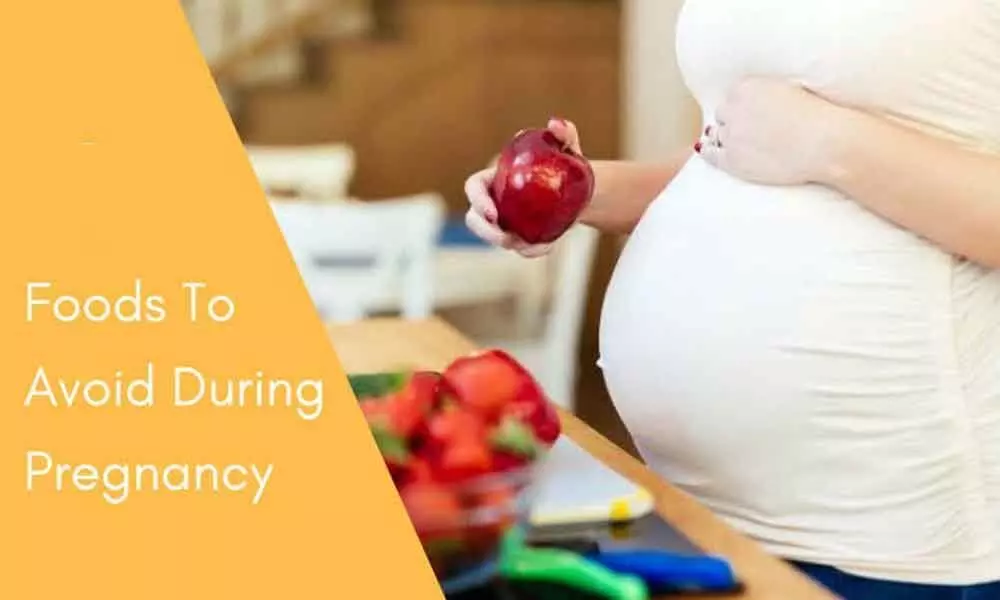Foods to Avoid During Pregnancy

It is not uncommon to find yourself crying in the middle of the supermarket aisle during pregnancy. Pregnancy hormones warrant mild hysteria.
It is not uncommon to find yourself crying in the middle of the supermarket aisle during pregnancy. Pregnancy hormones warrant mild hysteria. With all the dire warnings and conflicting advice you are given during pregnancy about food, why wouldn't you be crying in the supermarket?
Sometimes it seems like advice on what to eat and not eat during pregnancy tends to change, and so confusion is inevitable. When it comes to what you should eat, we always recommend discussing this with your OB/GYN first.
We recommend eating as many unprocessed foods as you can and avoid relying heavily on pre-packed foods and frozen meals. But what shouldn't eat for a healthy pregnancy :
Fish
When it comes to fish, there is a lot of conflicting advice out there. This is one of the controversial foods that pregnant women are urged to avoid due to their mercury toxicity. However, in a recent British Medical Journal, the Lancet suggested that kids born of mothers who ate lots of fish during pregnancy had better social and communication skills.
However, we can't deny that fish high in mercury can cause severe problems during pregnancy. When the mercury in fish is transferred to the fetus, health problems are consequential.
Fish high in mercury like shark, swordfish, tilefish, king mackerel, and marlin should be avoided during pregnancy. Tuna, on the other hand, even though a good source of nutrition, should be limited during pregnancy.
If you decide to eat tuna when pregnant, limit your intake to one serving or less a week. You can also eat two servings of fish low in mercury a week. These include salmon, catfish, shrimp, and Pollock.
This will allow you to get the health benefits of fish without exposing your unborn baby to too much mercury. Despite the controversy around what foods you should avoid during pregnancy, all pregnant women should avoid raw fish, especially raw shellfish.
Raw fish will expose you to the risk of parasites that could be detrimental to your pregnancy. Avoid smoked seafood as well unless it's thoroughly cooked or canned.
Undercooked Meat and Poultry
Pregnant women should always thoroughly cook all meat and poultry to kill bacteria and avoid toxoplasmosis infection that could severely affect your baby.
Vitamin A
Avoid foods with high levels of vitamin A such as liver and liver products, because during pregnancy. The high concentration of vitamin A could lead to congenital disabilities.
Hot Dogs and Deli Meats
Hot dogs and deli meats like salami, ham, turkey, and bologna, as well as meat spreads and refrigerated pates, should also be avoided because they expose the women to the risk of listeria infection. Listeria can lead to a miscarriage or premature birth. However, canned pates are safe.
Unpasteurized Milk and By-Products
Unpasteurized milk also has listeria. We recommend avoiding unpasteurized milk as well as by-products like soft cheeses. Soft cheeses like camembert, Roquefort, brie, feta, queso fresco, and queso Blanco also will expose you to the risk of listeria.
Unwashed Fruits and Vegetables
Fruits and vegetables are crucial during pregnancy. However, to reap all the benefits, you should thoroughly wash them before consumption. It is also best to avoid sprouted grains and beans like clover, alfalfa, and mung bean sprouts.
Caffeine
You don't have to put away your coffee entirely, but pregnant women ought to be very careful with how much caffeine they consume.
Pregnant women are recommended to limit their coffee to no more than 300 mg per day. Hence, you can always limit your caffeine to either two cups of coffee, tea, or soda. You could also settle for decaf rather than regular coffee. Avoid mochas, lattes, and espressos because they have higher caffeine levels compared to regular black coffee.
Visit childmode to learn more about pregnancy and how to prepare for your baby's arrival.










